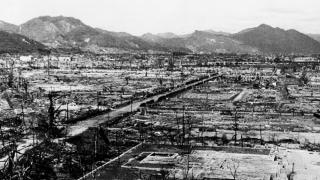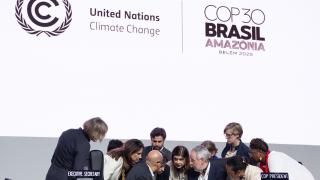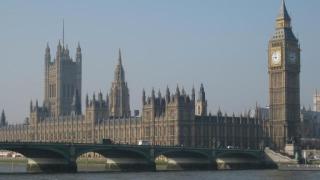
On 18 July, UN Secretary-General António Guterres announced the members of an independent scientific panel tasked with investigating the far-reaching consequences of nuclear war, marking the first such initiative in over three decades.
This follows a resolution passed by the UN General Assembly in November 2023 to initiate an international scientific investigation into the effects of nuclear war. The resolution was supported by 144 countries, including China and eight NATO members, although the UK, alongside France and Russia, disappointingly chose to vote against it..
The newly formed panel, which comprises 21 experts from a diverse range of scientific disciplines, will be responsible for conducting a comprehensive investigation into the physical, environmental, and societal impacts of nuclear war across multiple scales: local, regional, and planetary. The panel's work will focus on the climatic, radiological, and ecological consequences of nuclear conflict, as well as the profound effects on public health, agriculture, and global socio-economic systems in both the immediate aftermath and the decades that follow. In addition to producing a detailed report to be presented at the UN General Assembly in 2027, the panel will identify key areas for further research, helping to shape future policymaking and scientific inquiry on this critical issue.
The establishment of this panel is particularly timely, coming nearly 80 years after the devastating atomic bombings of Hiroshima and Nagasaki. As the spectre of nuclear conflict looms large once again, with rising geopolitical tensions and increasing nuclear posturing worldwide, the need for a thorough, updated assessment of the long-term consequences of nuclear war has never been more urgent. The data produced by this panel will be indispensable in informing arms control policies, strengthening global security, and guiding international efforts to avert future nuclear catastrophes.
Despite the UK's troubling opposition to the panel, the inclusion of Briton Andrew Haines - an expert in environmental change and public health based at the London School of Hygiene and Tropical Medicine - underscores the crucial global role for British scientific expertise. The UK not only has the capacity but also the responsibility to actively contribute to this vital research. Despite this, the Government maintains the panel would not provide new evidence or further the goal of a world without nuclear weapons. Regrettably, this approach is short-sighted. Research into the effects of nuclear war is essential, not only for understanding the full scope of its catastrophic consequences on human health and the environment, but also for informing policymaking aimed at reducing nuclear risks, guiding disarmament efforts, and ultimately preventing the outbreak of nuclear conflict. By dismissing this initiative, the UK risks isolating itself from the global consensus on nuclear risk reduction and undermining efforts to address one of the most pressing challenges of our time.
Furthermore, the UK’s position ignores its own historical role in nuclear testing, the harmful effects of which have had lasting environmental and health consequences both domestically and in the territories it tested. Supporting this panel would provide the UK with an opportunity to demonstrate leadership in confronting these ongoing challenges and reaffirm its commitment to the principles of non-proliferation, global security, and nuclear disarmament.
In light of the broad international support for the panel, the UK should reconsider its stance and lend its support to this critical initiative. Doing so would align the UK with the majority of the global community, enhance its standing in the international arena, and ensure that science-based evidence plays a central role in addressing the existential threat posed by nuclear weapons. Ultimately, the UK’s participation in this panel would serve to strengthen global efforts towards a safer, more secure world and reaffirm its commitment to preventing nuclear war.
Read more:
- UNA-UK’s response to the UK voting against the study
- Read a letter from MPs urging David Lammy to reconsider
- Read another instance of the UK voting against a UN nuclear resolution in 2023
- UNA-UKs letter to the UK government encouraging it to stop neglecting its nuclear responsibilities
Photo: The ruins of Hiroshima, 6 August 1945. Credit: UN Photo/Eluchi Matsumoto.






